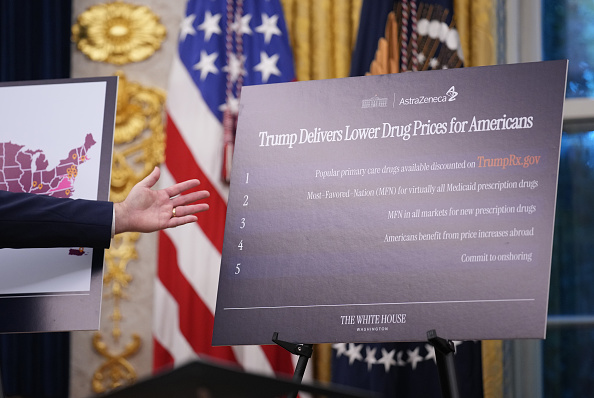Occupational licensing imposes heavy costs on the state and national economies, a recent study by the Institute for Justice (IJ) reports.
Nationwide, 19 percent of all jobs require some form of occupational licensing, the report estimates. In the 36 states with sufficient data to allow state-level estimates, the study found the share of workers licensed ranged from 14 percent in Georgia to 27 percent in Nevada.
Licensing costs the U.S. economy $6.2 billion in lost output and $183.9 billion in misallocated resources each year, the study found. At the state level, by the broader measure of misallocated resources, annual losses range from $675 million in Rhode Island to more than $22 billion in California.
By shutting out aspirants, licensing barriers may be costing the national economy more than 1.8 million jobs, the report estimates. The state-level job toll of licensing ranges from 6,952 in Rhode Island to 195,917 in California, the report states.
Less Competition, Higher Prices
Lee McGrath, managing attorney of IJ’s Minnesota office and the organization’s senior legislative counsel, says the reduction of competition causes higher prices and benefits the remaining providers.
“For instance, if I am in a licensed occupation, I have a cartel requiring you to only buy from me or people like me, and because I have fewer competitors, those people who can’t jump over the hurdles and can’t get an occupational license means I can raise my prices,” McGrath said.
“The benefit of my competing with fewer competitors means you’re paying more and I’m receiving more, to the tune of $6 billion a year,” McGrath said.
The reported $184 billion in misallocated costs shows the overall effect of licensing on the economy, says McGrath.
“This number captures the fact someone who doesn’t have a license, or can’t get a license, has to do something suboptimal,” said McGrath. “This can include military people and their spouses, military people who transfer from one base to another for a short period of time, people with a criminal record, or those who just don’t have the resources or time to get the requisite education even though they know how to do the profession or job.”
Little Evidence of Effectiveness
There is little to indicate occupational licensing boards are effective at weeding out incompetence and consumer fraud, says McGrath.
“Take, for example, Bernard Madoff, the greatest fraudster in American history,” McGrath said. Madoff was registered as a broker dealer with the Securities and Exchange Commission (SEC), the federal regulator of brokers and financial transactions involving securities. “The SEC did not bring him down,” McGrath said. “It was the New York Attorney General, using banking laws that prohibit unfair and deceptive trade practices.”
Reputation is the best consumer protection, says McGrath.
“In fact, consumers are better protected than ever before, with iPhones and review websites, without the help of licensing boards,” said McGrath.
Superiority of ‘Market Regulation’
There are many alternatives to occupational licensing, and the most important one is what we might call “market regulation,” says Clark Neily, vice president for criminal justice at the Cato Institute.
“For example, we’re seeing them in ridesharing services and restaurants,” Neily said. “When you get a ride from Uber or Lyft, their system for when you get a bad driver lets you try and contact the company directly or give [the driver] a low rating.
“My experience is if you give an Uber or Lyft driver less than four stars, you’ll get a call from someone at the company immediately to see what the problem was,” said Neily. “The same thing is happening with restaurants. You give them a bad review on Yelp, and it’s very common for the restaurant to contact you to try and fix the problem.”
Another important form of market regulation is private certifying bodies, says Neily. The IJ report estimates 5.6 percent of U.S. workers are certified in their occupation. IJ says certification is not a barrier to employment.
“There are a number of vocations where you can get certified by certain individuals with a history and knowledge of the vocation,” Neily said. “This information is valuable to the consumer because they can see you have certain credentials which would lead them to believe you are a qualified practitioner.”
Licensing Boards ‘Exclude Outsiders’
Neily, an attorney, says the public tends to put too much faith in the efficacy of occupational licensing, as there is no evidence licensing of lawyers, for example, has reduced the number of incompetent or unethical legal practitioners.
“They assume that once you put a regulatory board in charge, theoretically to ensure quality within the vocation, then it must be so, but the evidence is quite sparse,” Neily said. “Some regulatory boards don’t seem interested or particularly efficacious when it comes to ensuring high standards among practitioners.”
On the flip side, Neily says, occupational licensing has been extremely successful at keeping out competition.
“I don’t think it’s been very effective at increasing quality, but it is certainly effective at reducing competition and for enabling politically connected insiders to exclude outsiders,” Neily said.
Kenneth Artz ([email protected]) writes from Dallas, Texas.
Internet Info
Matthew Glans, “Research & Commentary: Occupational Licensing Laws Hurt State Economies,” The Heartland Institute, December 19, 2018:
Morris M. Kleiner and Evgeny S. Vorotnikov, “At What Co$t? State and National Estimates of the Economic Costs of Occupational Licensing,” Institute for Justice, November 13, 2018: https://heartland.org/publications-resources/publications/atwhatcot



